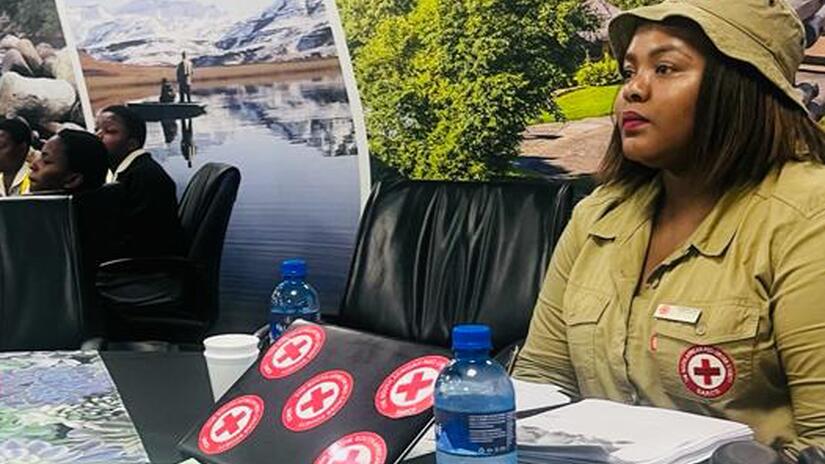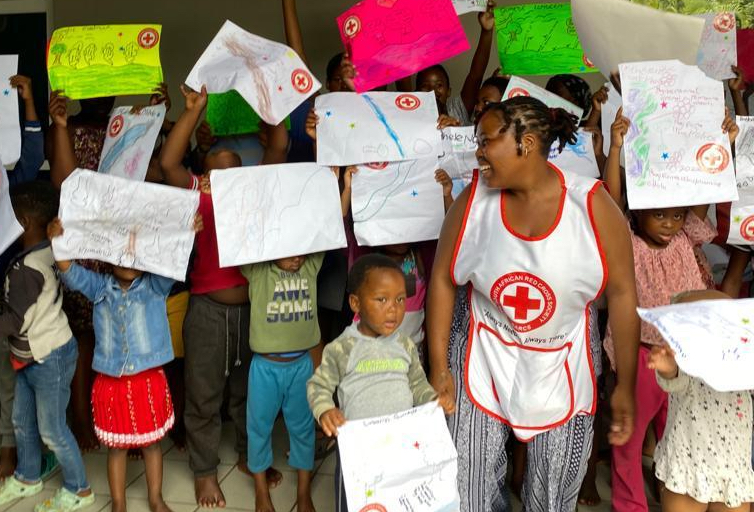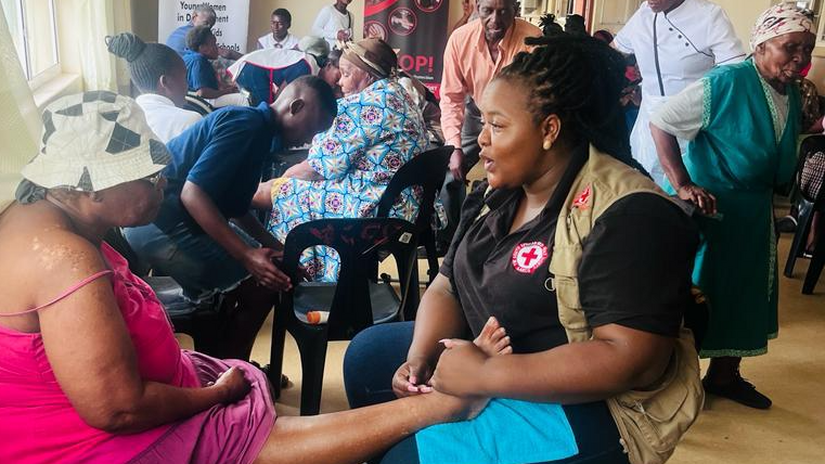Article and interview by Sindisiwe Mkhize
In the heart of Kwa-Zulu Natal, South Africa, Hloniphile Zinya is making a significant impact in the fight against HIV and gender-based violence (GBV).
Hailing from the vibrant community of Amahlongwa, Hloniphile shares her personal story, shedding light on her experiences, motivations, successes, and the existing gaps in her crucial role as a Youth Officer at the provincial office of the South African Red Cross.
“I grew up in an era where young people couldn’t freely talk to their parents or adults about sexual reproductive health or gender-based issues,” she says. “This then contributed to a lot of young people becoming victims [of sexual abuse, violence or of sexually transmitted diseases].
“Then I got a job a moved to town where I was also introduced to Red Cross and became a volunteer,” she adds. “I immediately knew that what Red Cross was providing was exactly what my community needed. I wanted to see change in my community especially the youth. I wanted the young people of my community to realise their strengths.”
As a youth officer, Hloniphile supervises seven branches in Kwa-Zulu Natal, or KZN, steering the youth program with the assistance of branch coordinators. Her responsibilities extend to visiting branches, providing implementation support, and conducting vital training sessions on sexual and reproductive health.

For South African Red Cross youth officer Hloniphile Zinya. raising awareness about HIV and gender-based violence is a full-time passion and occupation.
Photo: South African Red Cross
A deep understanding
Through her work, she has gained a profound understanding of the diverse community dynamics and their contributions to issues related to HIV and GBV. “I have also observed that GBV survivors undergo a lot of post trauma that in most cases influences the way they respond to life,” she says. “Most of the survivors are judged by others, thus making it difficult for them to come out and speak about their experiences.”
During her experiences, Hloniphile has encountered the harsh realities faced by victims of GBV, noting that post-trauma often influences decisions they make in life. “Men are also facing a lot of abuse, but the society has taught them to never show pain,” she adds, noting that this can have a profound impact on the way they live their lives.
Hloniphile reflects on the changing attitudes toward HIV prevention, observing that, despite education efforts primarily targeting rural areas, youth in urban centres neglect preventive measures once they leave for further studies.
“Most of the youth is practising unhealthy behaviour,” she laments. “The attention of education was mostly given to rural and semi-rural areas with the perception of that they are deprived of information. But the same youth comes to the city to further their studies and forget all that they have been taught.”

Investing in the future
When asked about her motivation, Hloniphile passionately expresses her dedication to holistic youth development, emphasizing the transformative power of investing in the health, both physical and mental, of the future leaders. Here’s what she says when asked her more about what gets her up in the morning every day.
Q: What motivates you to do what you do?
A: I want to see an evident change in behaviour in people. especially young people. It is said that the youth are the future leaders so investing in them holistically so that they are healthy even in the aspects of physical and mental health is worth doing every day. Furthermore, witnessing that change through results, for me is great motivation to keep doing more.
Q: What does it mean to you?
A: To me, the impact of facilitating change in the lives of young people is very personal. The youth of the rural and semi-rural communities were left out and don’t have access to knowledge and information. Our activities enable youth to have a healthy mind and body, thus giving them far better chances to be trusted future leaders.
Q: Why do I feel its important to your community?
A: I feel that sooner or later young people are going to get into leadership and when that time comes, they must be holistically equipped. Another thing is that my community has had quite an intense number of GBV cases, and some victims never lived to tell the story. Most communities are still struggling with adherence to medications. Gender equality is still another matter that communities need to be educated on. Gender and sexuality crimes are still rife so I feel the community needs us more and more.
Q: What have been some of your biggest successes so far?
A: Our successes thus far include establishing a Provincial PSS focal person for counselling, building strong relationships with local municipalities, and becoming a master trainer for health workers, contributing to combating HIV, GBV, and early pregnancies.
Q: What are some of your biggest challenges?
A: Despite these achievements, there are significant gaps in our efforts, such as an unfunded youth program leading to volunteer loss, the need for more interventions targeting perpetrators of GBV, advocating for early intervention strategies in schools, urging for a SARCS hotline for victims in need, and emphasizing the importance of intensive, beneficiary-friendly education.

